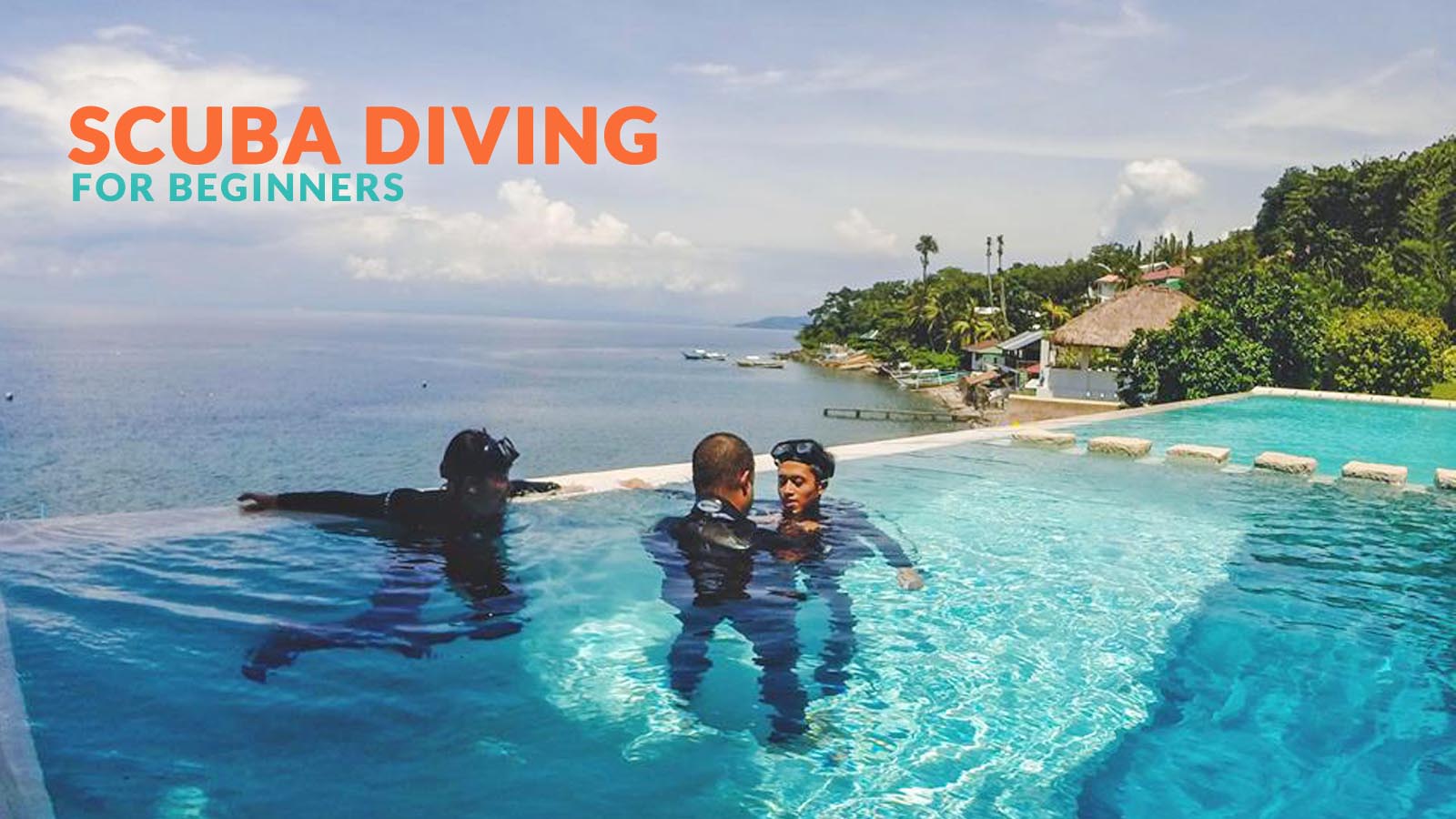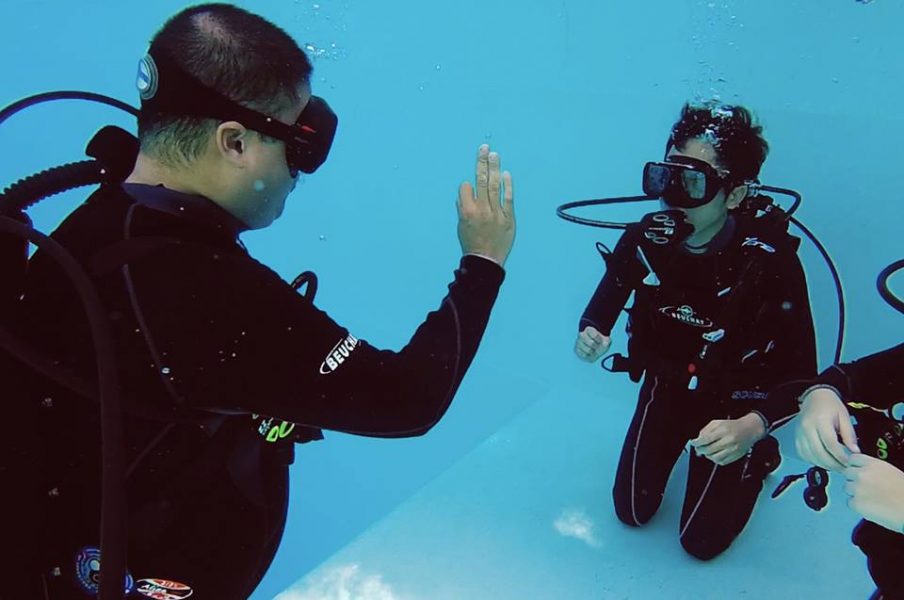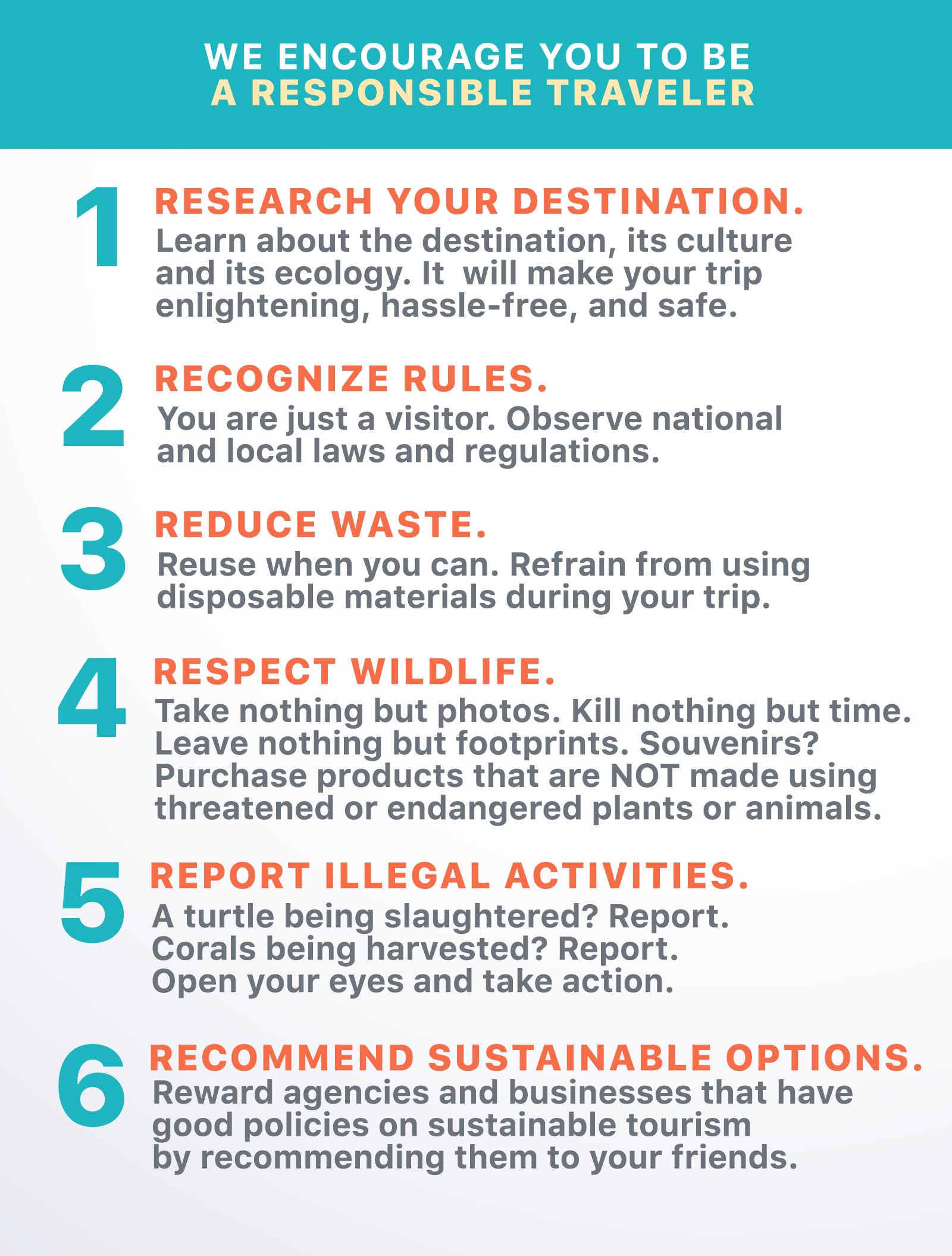
If you think snorkeling isn’t enough to satiate your thirst for adventure, why not try scuba diving? It allows you to dive deeper and longer, giving you more than enough time to see the beauty of nature’s underwater ecosystem. See colorful corals up close, swim with all sorts of fish, and catch a glimpse of manta rays, nudibranch, sharks, and other wildlife.
If it’s your first time to go scuba diving, here are the things you need to know.
WHAT'S IN THIS GUIDE?
Swimming Skill and Experience
This is a frequently asked question of those who are thinking twice about scuba diving. If you’re only doing the discovery dives, you won’t need much swimming experience. Your instructor will be guiding you from the practice pool to the open water. Your weightlessness also makes it easy to move, regardless of whether you know how to swim or not. However, if you plan to get advanced certificates in diving, you may need to improve your swimming skills and experience as well.
Practice Pool
You won’t start in the open water. Your instructor will teach you the basics first in a pool. He or she will teach you the following:
- Using and adapting to the regulator to breathe underwater
- How to clean your mask in case it fogs or fills with water
- Hand signals to use underwater
- How to deal with weightlessness and moving underwater at certain depths
- How to put the regulator back on, if ever you lose it underwater
- The importance of equalizing before diving deeper
- How to read the oxygen gauge
Weightlessness and Movement Restrictions Underwater
Weightlessness is a unique feeling; one many first-time scuba divers can agree on. This experience is one of the reasons many prefer scuba diving compared to just snorkeling. The deeper you go, the more weightless you’ll feel. This is as close as you can get to having experience of outer space’s ‘zero-gravity’. You can glide in different directions without much effort underwater.
The knee-jerk reaction of some beginners is to fight the water and struggle a bit, but relax and let the surrounding water and your equipment support you. Struggling will only consume oxygen faster, meaning you’ll spend less time diving.
Water is dense, meaning you’ll feel resistance as you move around. Moving too much may lead to exhaustion; relax and use controlled movements while swimming. You won’t spend much energy because your instructor will be guiding you the whole time.
Getting Used to the Regulator
It takes a while to get used to breathing through your mouth. You may also feel discomfort and strain with the regulator in your mouth for almost an hour. Your instructor will walk you through the process and will give you enough time to get accustomed to using the regulator while in the practice pool.
Underwater Noise
One of the things you’ll notice in the practice pool and first dive is the loud noises your breathing makes. The bubbling and exhaling create a loud noise that takes time to get used to. The density of water makes it easier for it to conduct sounds, meaning sound waves travel in the water faster than usual. All the sounds you hear underwater may seem like they are coming from behind you. This can be confusing the first few minutes, but after a while, you’ll be able to tune it out and just enjoy the colors of the plants and animals you see.
Seeing Underwater
A majority of masks used for scuba reduce or completely cut off a user’s peripheral vision. This limited vision takes a while to get used to, but once you spend more time underwater, you’ll get accustomed to it. The blind spots may make it difficult to see and maneuver, but you’ll eventually know where these are. Your instructor will also tell you which way to look and where to turn during your first dive.
While underwater, things look closer than they actually are. This makes it easier for divers to read their oxygen gauges, but it may also seem confusing for first-timers. Experienced divers’ brains already know how to adapt once they’re in the water. Again, your instructor will be there to guide you every step of the way.
The Need to Urinate
First-timers’ bodies will react differently to the underwater environment. Lower temperatures may result in a reaction called ‘cold water immersion diuresis.’ The cold water will boost the speed of the body’s synthesis of urine. A first-timer may need to urinate during the dive but may be too ashamed or disgusted to do so. However, many experienced divers pee in their wetsuits. It takes some time to get used to, but if you can’t do it, hold it in. If the urge to urinate is too great, tell your instructor you want to end the dive.
——
These are some of the things you can expect when you go scuba diving for the first time. After a couple of dives, breathing through a regulator, the weightlessness, and maneuvering underwater will become second nature. It takes effort, money, and time to get a license, but it is worth it in the end.
More Tips on YouTube ⬇️⬇️⬇️






Comments